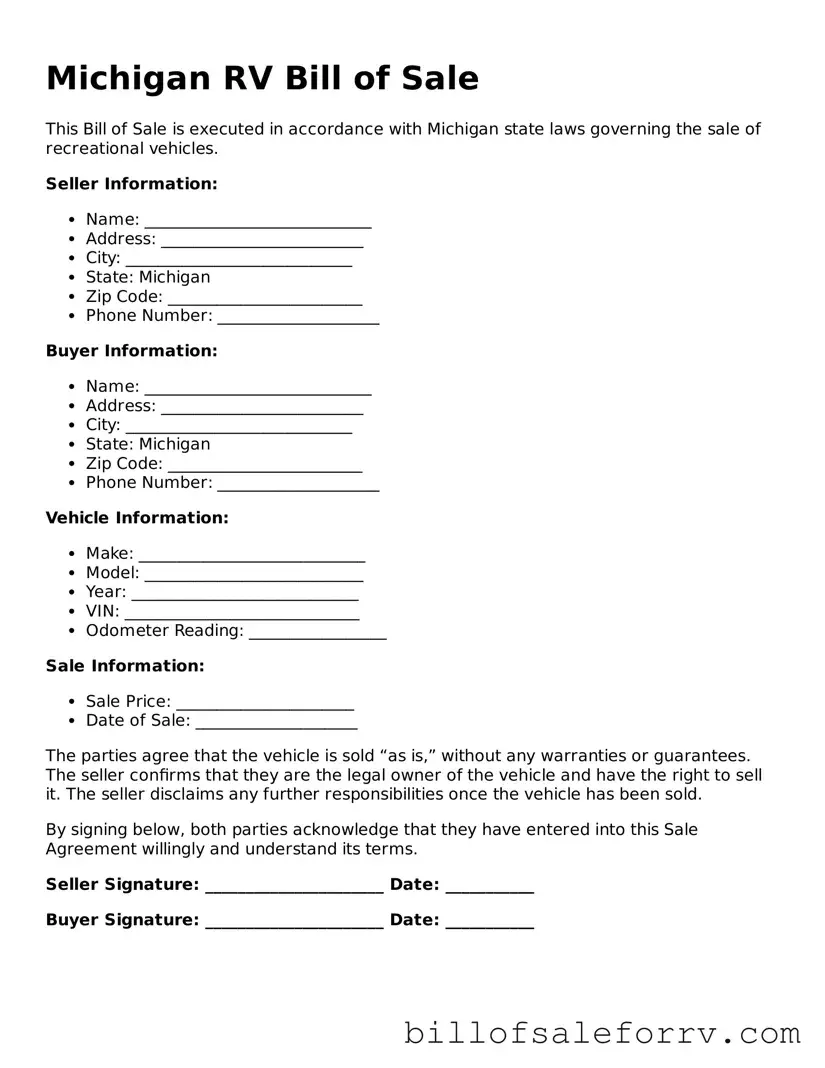Michigan RV Bill of Sale Template
The Michigan RV Bill of Sale form serves as a crucial document in the buying and selling process of recreational vehicles in Michigan. This form outlines the details of the transaction, including the identities of the buyer and seller, vehicle information, and the sale price. Having a properly completed Bill of Sale not only protects both parties but also ensures compliance with state regulations.
Launch Editor Here

Michigan RV Bill of Sale Template
Launch Editor Here
Complete the form and get on with your day
Edit and complete RV Bill of Sale online, all in minutes.
Launch Editor Here
or
⇩ RV Bill of Sale File
